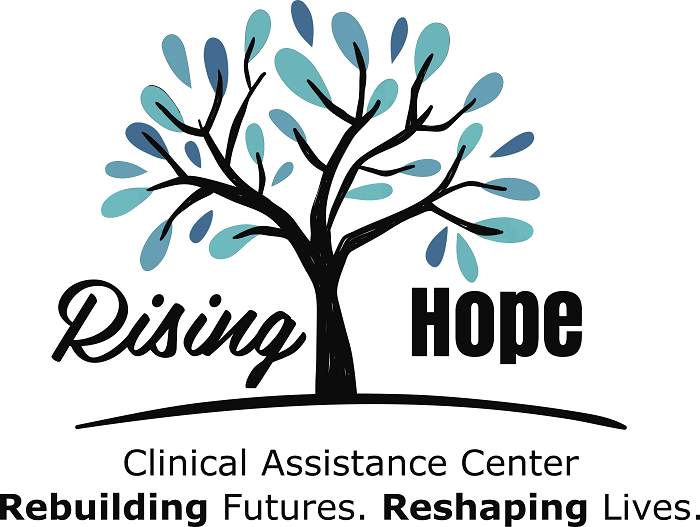

Food and Mood: How Healthy Eating Can Benefit Mental Health
Having a healthy body can benefit your mental health, and the two best ways to have a healthy body are to eat well and stay active. Nutritionists and Psychiatrists have learned in recent years that food and mood are clearly-related to each other.
Studies in the 2010s have repeatedly shown a pattern of good eating habits creating more likelihood for good mental health and unhealthy eating habits creating a higher chance of mental illness. A 2018 study of people being treated for depression showed that nearly one-third of those who practiced a healthy diet over three months no longer showed signs of depression.
A study showed that teens who have the "lowest-quality" diet are 80% more likely to experience depression than teens who have a high-quality diet.
Healthy eating habits can boost brain health and increase the growth in your brain's cells. Good eating habits also improve your physical health, especially your gastrointestinal system: this system's health is key to how you feel physically. Feeling good physically is often a positive contributor to mood. Having a healthy diet does not mean that you won't experience mental illness, and it is not a cure if you do have a mental illness: therapy and medication will still greatly benefit you and may be necessary.
It is key to note that you don't have to cut unhealthy foods out of your eating habits completely, or that you have to eat tons of fruits and vegetables each day to see positive results.
If you are taking medication, talk to your doctor about changing your eating habits. A reduction of certain nutrients such as sodium can negatively interact with your health with certain medications.
What you should eat more of


Swap out your white bread and grains with wheat products. Honey wheat bread is delicious. If you are frying foods or using a pan, use olive oil, vegetable oil, or a vegetable-based butter substitute rather than butter. Vegetable-based butter alternatives such as I Can't Believe It's Not Butter! will provide you with a buttery spread while being a healthier alternative.
Look for yogurts with "live cultures." Most yogurts have these. Live cultures are healthy bacteria that boost your gastrointestinal health and make you less likely to have digestive problems, which will not make you feel good.
Pepper is a good seasoning, but avoid using salt. See what is in your spice cabinet and try adding different spices to your foods. Eggs and fish are very good for you.
Try to have at least one serving of fruit and one of the vegetables with your lunch and dinner. Don't skip breakfast, even if all you eat is a granola bar. Though nutritionists recommend five to six servings of fruits and veggies daily, that can be overwhelming to many. Don't worry about meeting those numbers; just try to improve on what you're already doing.
Taking daily multivitamin gummies is an excellent way to get in nutrients that may be missing or only present in small quantities in your food. Next time you go to your doctor, get your blood tested and if there are particular vitamins that you have a deficiency of, buy, and start consuming vitamins of that form. Almost all vitamins are now available in gummy form.
Need something sweet? Dark chocolate is very good for you in moderation!
What you should eat less of


It is essential to note that these less healthy or unhealthy foods are not ones that you can never have, but ones that you should have less of. Fried foods are not good for you, so try to avoid fast food. Try grilled or baked foods, especially meats, as an alternative.
Avoid packaged crackers or chocolate granola-type bars, which often contain lots of sodium. Use an oat-based bar, like many of the Nature Valley products. You don't have to do this with everything, but look at the nutrition label on the back of foods and choose alternatives to ones that have a high percentage of your daily value of sodium. It is easy to go above this number if you're not careful. Canned foods often have lots of sodium, but you can find many foods whose packaging advertises that they have less sodium.
Choosing foods that are lower in fat is also good for you. Many of these items are right next to their non-low fat equivalents on the grocery store shelves and taste identical. Aside from that, if you look at an item's Nutrition Facts and it has a list of dozens of ingredients that you don't know how to pronounce, it's best to avoid them. Organic and healthier alternatives are often next to them and usually don't cost more, or if they do, the difference is marginal.
Consume fewer desserts, such as ice cream, cookies, and pie. When you get those sweets, look for ones that say they have lower calories or lower fat. Drink less soda; when you buy soda, purchase the mini cans or bottles that have about 100 calories rather than the full-sized ones. This way, you get to enjoy the soda you crave, but will not consume as much of it. Look for the "light" or low-calorie versions of drinks such as lemonade.
You no longer have to read the Nutrition Facts to find healthier versions of many of the foods you enjoy. Many items make clear on their packaging that they have lower fat, sodium, or sugar, or are organic.
Do I have to diet?
In American culture, when people think of the word diet, they often think of regimented programs such as Weight Watchers. Having a healthy diet does not mean that you have to plan out your meals, count calories, or avoid food with carbs, though that can help many people, especially those with specific health goals. It does not mean that you can't eat dessert or that you have to have a salad every day.


Having a healthy diet is simply making choices with consideration of how the food you consume affects your health. Healthy eating decisions range from what you pull out of the closet and fridge daily to what you buy at the grocery store. In addition to fruits and veggies, and other aforementioned healthy foods, you can make many small impacts that add up by eating many of the foods you have loved for years while having healthier, identical-tasting versions of them.


No Comments
Sorry, the comment form is closed at this time.